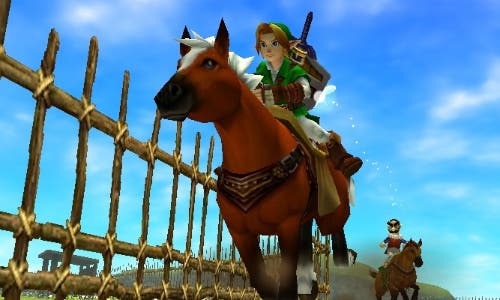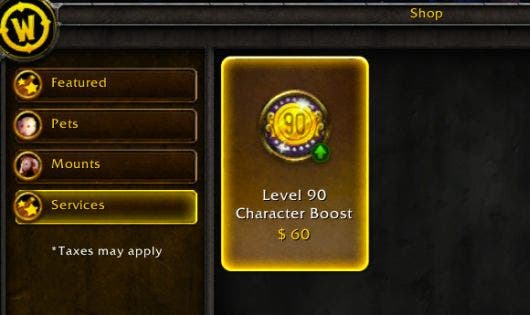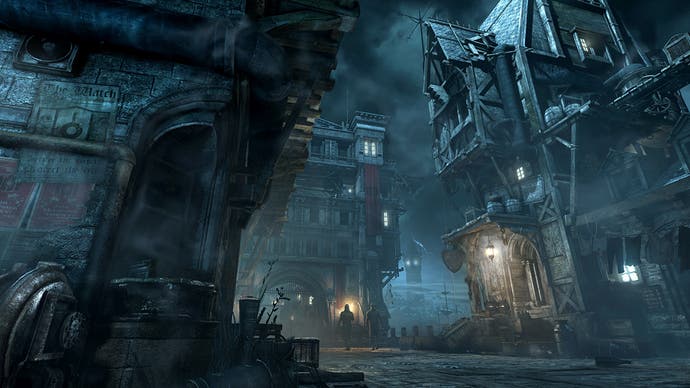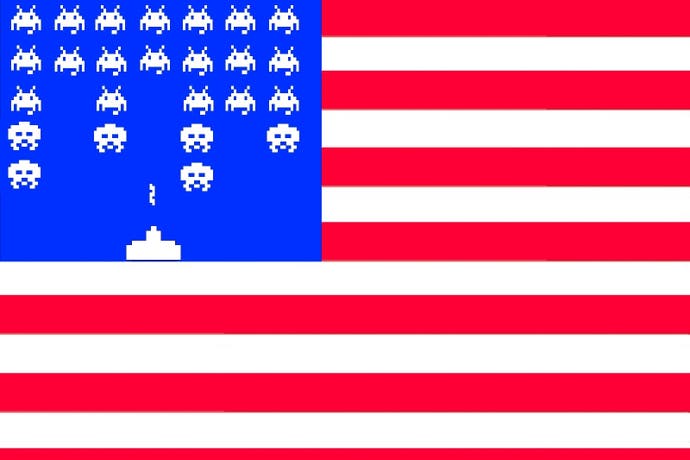Letter from America: Who makes the best Zelda games?
Plus: 3DS is three this week.
Greetings all!
I'll get the ball rolling this week with a Parish special - a feature in which he asks: Who makes the best Zelda games? He asked the same question about Mario games a few months ago, and will soon be pondering the games featuring a certain blue hedgehog. But for now, it's all about Nintendo's pointy-eared fella.
When Jeremy initially talked about writing this feature, I thought it was going to be a nice, nostalgic saunter down Memory Lane followed by a left turn into Foregone Conclusion Close. But once I saw the list of different teams and the enormous amount of Zelda games that they've produced over the years, it's clear that there's plenty of room for debate.

Reading that feature got me thinking about which Zelda game is my favourite, and damn is that a poser. I loved some of the early NES games, and rediscovering this "lost" pair of Zelda Game Boy Colour Virtual Console releases was one my gaming high points of last year. But I just have to hand it to Ocarina of Time. You know when you sometimes play a game and it buries itself so deep into your head that you don't really remember it as a game, but instead recall it like you were actually there. No TV screen. No border. Just the hero, the places, the monsters, and those all-important memorable set pieces. That's Ocarina of Time to me. Magic.
It was 3DS' third birthday this week, so to celebrate we wrote one of our epic, multi-perspective pieces on what the system means to us. Turns out we all love the li'l eye-befuddling gaming clamshell - but for different reasons. It's still a little too early to tell whether or not 3DS will go down in the annals of history as a classic Nintendo machine - but what's certain is that after a somewhat bumpy start, it has become quite the success story. Assuming you consider some 43m units sold so far a success.
Biggest laugh of the week was provided by a Nintendo-share-owning Wall Street hedge fund manager, who suggested that Nintendo use microtransactions in its games - presumably to super mushroom power-up his portfolio. His suggestion was one of sheer magic, and while I'm sure it was slightly tongue in cheek, the mere thought of being charged 99 cents to jump a little higher in a Mario game was enough to get gamers scrambling for their pitchforks and torches.

Another microtransactional eye-raiser came from Blizzard. Although microtransaction seems like a completely inappropriate nomenclature for the $60 fee the company wants to charge users for the privilege of instantly boosting one of their characters to level 90. The reason for this megatransaction's princely sum is simple: Blizzard doesn't want to devalue the old-fashioned way of leveling up by playing the game. I can sort of see the logic in that, but at the same time, 40-odd quid to level up a character seems like a mug's game to me.
A couple of upcoming games we checked out this week were Lego Hobbit, and Murdered: Soul Suspect. Lego Hobbit is exactly what you'd expect, but I did have fun playing it. Soul Suspect is a far more interesting prospect, however. It's an action adventure game in which you're cast as a ghost trying to solve your own murder. Sort of like Patrick Swayze in Ghost, but without a potting wheel minigame.

For what's normally a fairly quiet month for new games, February has turned out to be quite busy - and this week was no exception, with a bumper jamboree bag of odds and sods being delivered to USG Towers.
The biggest and most-anticipated game was Castlevania: Lords of Shadow 2. I've been a fan of the series ever since it only had 8 bits, but unfortunately this latest one doesn't make much of an impression, despite all the bells and whistles available to the designers. Shame really - the last LoS was quite decent.
Another old franchise getting a modern-day makeover was Thief, which is back after serving a 10-year stretch. But despite having a really excellent open-world environment, it didn't quite deliver the goods.
I nabbed reviewing honours for Plants vs Zombies: Garden Warfare, and ended up absolutely loving it. It strikes the right balance between being silly, lighthearted and accessible, while also offering top-notch multiplayer team combat action. It's a smidge light on content at launch, but with the promise of additional free arenas to come, it gets my vote as game of the week.
We encountered more zombies (but no plants) in the PC re-release of the 2005 survival horror classic Resident Evil 4, which has been spiffed up all 1080p style, with reworked textures and smooth frame-rate. However, while it looks good, Capcom didn't get everything right, as Mike explains.
Yet another re-release-remake was Tales of Symphonia Chronicles, which sports not one, but two Tales RPGs on a single PS3 disc. That's pretty good value for money, but unless you have a particular taste for this particular kind of RPG, there are probably more interesting things to do with your time and money.
We checked out a pair of very nice, very odd 3DS games. Professor Layton and the Azran Legacy is an entertaining puzzle adventure that I'm sure will be ignored by most, but those who dare give it a go will not be disappointed. The other was Inazuma's Eleven, a football RPG. Yep, you read that right: a footy RPG. It's the sort of game that makes you wonder why the hell you're playing it, and then makes you wonder why the hell it's giving you such a laugh. It's really bizarre, but fun.
While a visual novel/dating sim/RPG might sound like some kind of specialised product aimed at a micro-segment of a niche market, Pete and Cassandra did really like Amazon Princess - which falls into that slimmest of sliver-thin, bet-you-never-knew-it-existed genre. It's the type of game I imagine would get robbed of its lunch money by FPS and fighting games were there such a thing as a video games secondary school, but I do love that things like this exist.
I'll wrap up with our review of Chuck's Challenge 3D, which is the semi-official sequel to Chip's Challenge, a puzzle game that was released back in '89 on the Atari Lynx, C64, Speccy, Atari ST, Amiga, Amstrad CPC and MS-DOS. Quite a memory-triggering cavalcade of period machines, it must be said. It's quite fun, but I think I'm going to check out the original. I know I have a Lynx version somewhere....
See you next week.
Jaz Rignall is editorial director of USgamer.net, a version of Eurogamer from the country whose football season kicks off in a couple of weeks. Go San Jose Earthquakes!

